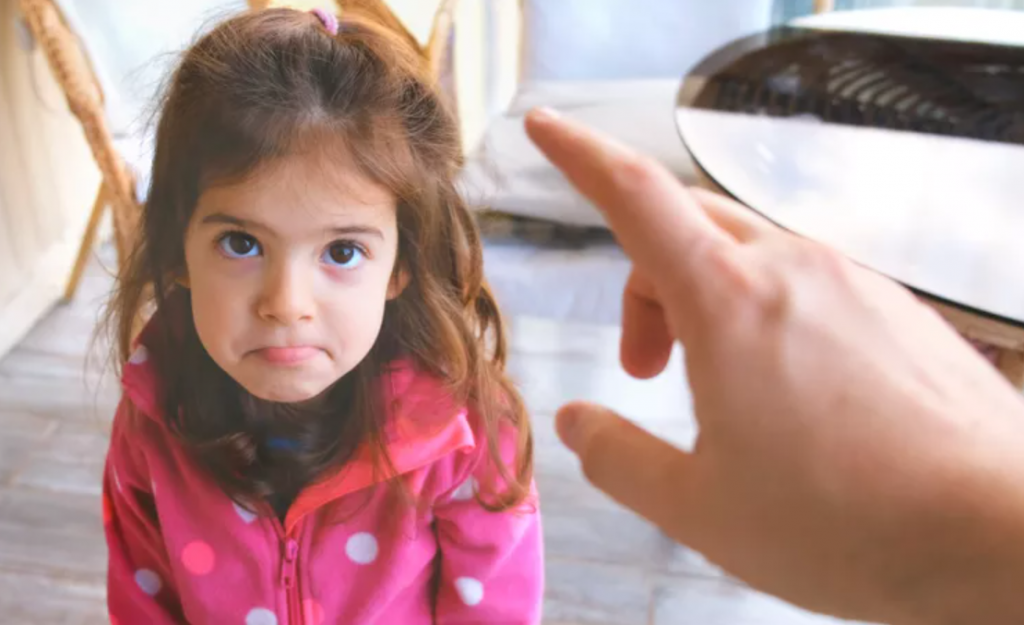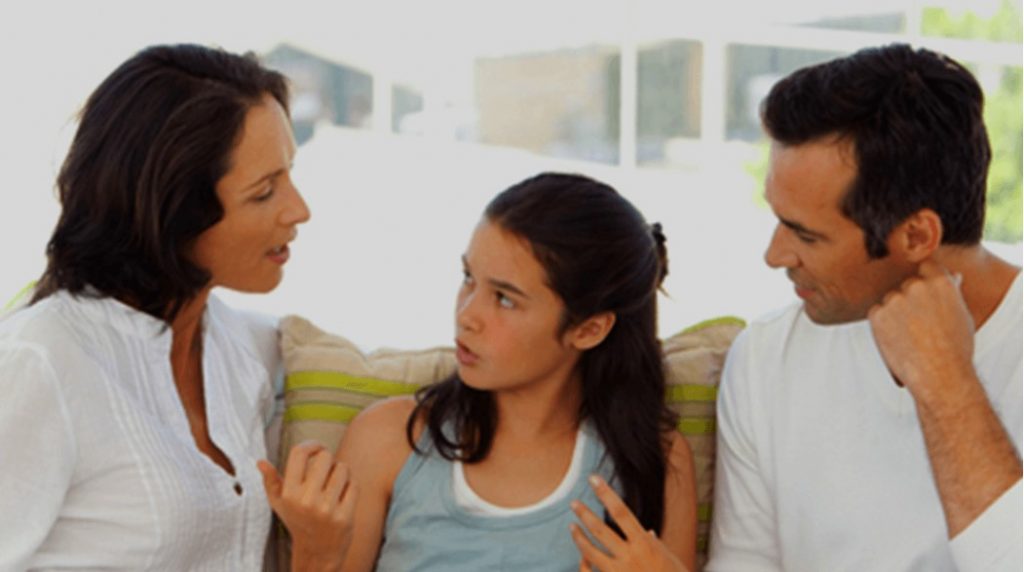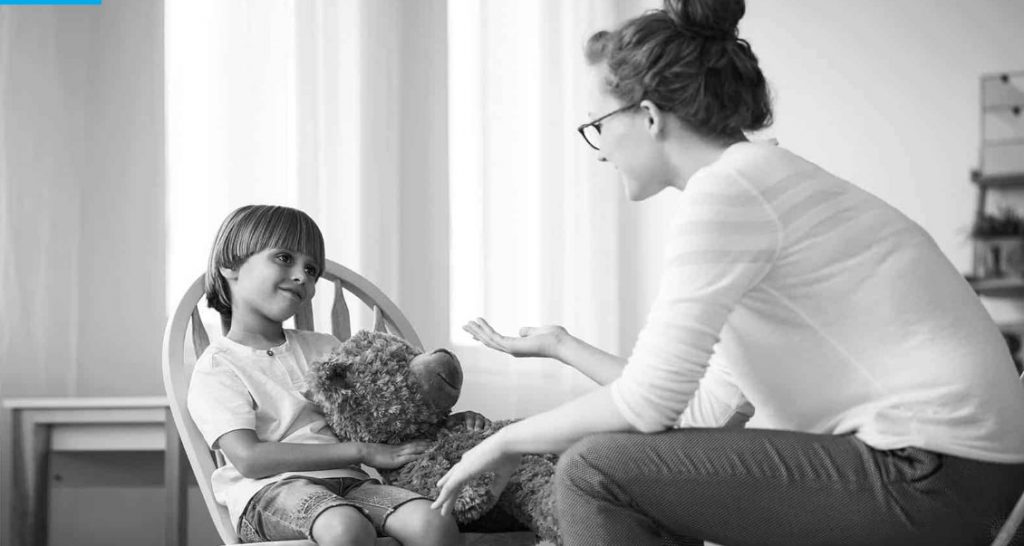As a parent, it can be unsettling when another parent shouts at your child, regardless of the location. This can cause feelings of protectiveness, confusion, anger, or upset. It’s crucial to take a moment to recognize your feelings and evaluate the situation before responding. In this article, we’ll discuss how to de-escalate such situations, have a conversation with the adult about what happened, and help your child process the experience. We’ll provide tips on how to handle the situation with empathy and tact, whether the adult who yelled at your child is a stranger, friend, or family member.
1. How to De-Escalate the Situation
It’s natural for a parent to feel protective when another parent yells at their child. It’s important to check in with your child before addressing the person who yelled. Ask your child if they’re okay and try to understand what happened.
Don’t push your child to do what the other parent wants; remember that your child’s needs come first. When addressing the other parent, approach them with a calm demeanor and speak in a firm but respectful tone. You can introduce yourself and take a curious standpoint, asking them what the concern is. Humor can also be useful in diffusing the situation, depending on your personality and the other person’s demeanor. If your attempts to de-escalate the situation are not successful, it may be best to pause the conversation or remove yourself and your child from the situation.
2. Check In With Your Child
Prior to addressing the person who yelled, it’s crucial to check in with your child to ensure their well-being and attempt to understand what happened, according to Dr. Holman. Although you may not have a clear picture, it’s important to have an idea of your child’s perception.
Additionally, you can ask the adult how their child is doing and offer an apology if you believe it’s necessary. However, it’s crucial not to pressure your child to comply with the other parent’s demands. Dr. Holman advises prioritizing the child’s well-being, as adults may demand apologies immediately. Still, it’s essential to comprehend the child’s perspective before making a split-second decision, causing them to feel unsupported.
3. Remain Calm
According to Schaffner, paying attention to your body language and tone of voice is crucial when attempting to de-escalate a situation. Maintaining a calm demeanor and speaking in a firm yet respectful tone are essential. When dealing with an unfamiliar parent, it’s best to introduce yourself and approach the situation with curiosity.
For instance, you could say, “Hi, I’m Sarah’s mother. Can you tell me what the issue is?” Using humor to defuse the situation is another option, but it depends on your personality and the person you’re speaking with. If humor isn’t your style, taking a more serious approach is acceptable. “If your efforts to de-escalate the situation haven’t been successful, it might be best to pause the conversation or remove yourself from the situation,” advises Schaffner.
4. Respond With Compassion
When addressing a situation where another parent has yelled at your child, it’s important to approach the other parent calmly and try to understand the situation so you can make a plan of action, according to licensed mental health counselor Julia Chamberlain. It’s essential to lead with understanding and compassion to offset any defensiveness the other parent might feel, even if they were in the wrong. Chamberlain suggests using a compliment sandwich, where you first compliment the other parent, then address the situation, and end with a positive note, such as proposing a plan to move forward together.
Matching the other parent’s intensity will only escalate the situation, so it’s essential to maintain a calm and respectful demeanor.
5. Set Boundaries
If yelling is a pattern of behavior for a family member or friend, it is essential to establish ground rules for how they interact with your child. Allowing someone to continuously yell at your child for their mistakes could have harmful consequences. Research has found that harsh verbal discipline can lead to conduct problems and even depressive symptoms in kids if it is ongoing.
Therefore, it’s crucial to set clear boundaries and expectations around what is and is not appropriate when addressing issues with your child. These boundaries can include using a non-yelling approach, communicating with you first when issues arise and showing respect for your child’s well-being. “Establishing clear boundaries is a necessary and healthy part of all relationships,” advises Schaffner.
6. What to Say
To address a situation where someone has yelled at your child, it’s crucial to have a conversation with them about what happened and why they acted that way. Inviting the other person to talk with you is a good way to initiate the conversation. According to Schaffner, opening with an invitation and expressing the desire to hear their perspective can make them feel more comfortable and willing to talk.
During the conversation, it’s essential to share your story and how the experience affected you and your child, and it’s important to remain calm and not resort to yelling. By doing so, you are modeling emotional control to your child, which is a valuable life skill. It’s also important to establish boundaries and ground rules with the person who yelled, especially if it’s a recurring pattern of behavior, and to use a non-yelling approach when addressing concerns about your child.
7. How to Help Your Child Process the Incident
It is important to be supportive of your child when they have been yelled at by an adult, regardless of their age. However, it can be overwhelming and scary for them, which is why it is essential to approach the conversation with an open invitation to talk and be understanding of their feelings. According to Schaffner, asking your child how they felt about the situation can help them explore their emotions, and it is crucial to validate their feelings.
You can also work with them to come up with a plan for a similar situation in the future and remind them that you are there to support them.
8. Tips for Regrouping and Moving On
According to Schaffner, regrouping after a difficult situation can happen on two levels – individually and relationally. Individually, it’s important to identify and use self-care strategies that help one relax after a difficult situation, which can include journaling, going to a quiet space, deep breathing, reading, listening to music, or going for a walk. On a relationship level, it’s important to talk and share openly about the situation together and to encourage children to use the self-care that works best for them.
Additionally, it’s a good time to share in a fun or relaxing activity together.
9. Check Your Emotions
Children go through a range of emotions during stressful situations, and it’s important to acknowledge that they are affected by the emotions of the adults around them. “Children learn about emotions, how to express them, and how to regulate them through adults,” Schaffner explains. This is known as co-regulation, so it’s crucial to be aware of our emotional state during and after stressful situations.
10. Turn It Into a Learning Experience
According to Schaffner, stressful situations provide an opportunity for learning and growth. As adults, we are instrumental in helping children develop necessary skills such as emotional regulation and conflict management. By modeling healthy ways to navigate stressful situations, we can help children learn and grow.
Having a conversation with your child, reflecting on the events, and acknowledging the feelings and emotions experienced during the situation is essential. Mistakes happen, and they provide an opportunity to try something different. Schaffner suggests exploring different ideas by asking your child what could have been done differently.
11. Practice How to Handle Future Incidents
Schaffner recommends that practicing is an excellent way for children to learn skills. To help kids understand how to handle challenging situations, parents can role-play and have their child practice what they could say or do in these circumstances. Adults can also benefit from practicing, particularly when it comes to having difficult conversations.
Schaffner suggests writing down what you want to say and practicing it to make sure you communicate effectively.












